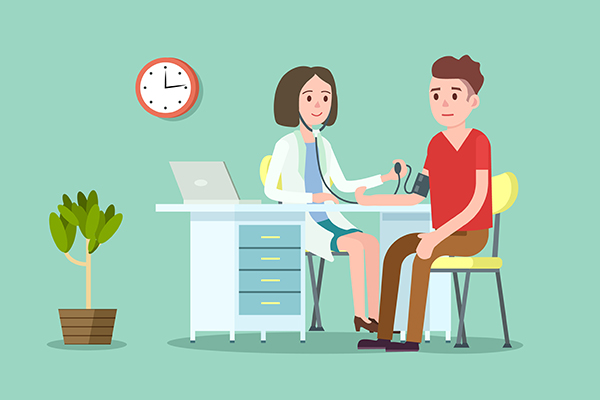Worried about your high blood pressure? If your numbers are looking unhealthy, we’ve got good news for you, as it turns out you can lower your blood pressure with some easy changes in just 16 weeks!
What causes high blood pressure?
High blood pressure is a common side-effect of modern life. Everything from stress, to a fatty diet or a lack of exercise can cause your numbers to creep up. Particular risk factors include an irregular work schedule, such as working night shifts, smoking, being frequently stressed or anxious, disordered sleeping, thyroid problems and heart disease.
In the US, where the study took place, almost half of adults are suspected to suffer from hypertension, according to the American Heart Association. High blood pressure has very few symptoms, but can lead to health problems such as heart attacks, strokes, angina, loss of vision, kidney disease and others. In the UK it affects more than 17 million of us.
Many people choose to regular their blood pressure through prescribed medication, but a new study has set out to examine how effective simple lifestyle changes can be in lowering blood pressure – with amazing results.
How can I lower my blood pressure?
Happily it’s possible to reverse the problem with a range of lifestyle changes, such as a low fat diet or an increase in exercise, both of which were tested in a new study by researchers in North Carolina.
Other suggested methods include cutting down on alcohol, stopping smoking, cutting down on processed foods, meditation to lower stress and lowering salt in your diet.
Read on to discover which changes worked the best…
What is the DASH diet?
The DASH diet is a heart-healthy eating plan based around vegetables, fruit, whole grains, low-fat or fat-free dairy products, fish, beans, nuts and poultry. It’s low in saturated fats including red meat and certain oils such as coconut and palm.
Does the DASH diet lower blood pressure?
Those undertaking the DASH diet but without exercise changes saw a reduction in blood pressure. But participants in the group making dietary changes and exercise changes (adding in sessions three times a week) saw the biggest changes to their blood pressure, reducing readings by a significant amount as well as losing weight (an average of 19lbs over the 16 week experiment). Half of participants required hypertensive medication before the study took place, but at the end only 23 per cent of those who changed their diet still met the criteria for this medication.
Exercise can lower blood pressure as well as drugs
New research has now revealed that regularly walking, swimming or doing simple weight training exercises can work as well as taking medication such as beta blockers or ACE inhibitors. The research looked at data from 40,000 people and was put together by academics at the London School of Economics. They found a combination of endurance exercise and resistance training were just as effective as taking pills for those with hypertension.
Altering your diet and adding in moderate exercise can be a great way to lower your blood pressure without medication – although you should consult your doctor before making lifestyle changes.
Which exercise can lower blood pressure?
Before starting any exercises, consult your GP for an overall health check
and get their recommendations on exercise, as the causes of each individual’s high blood pressure vary, so the advice will vary.
Once you have done this, overall, regular cardiovascular exercise is recommended, such as daily walking and movement, with running, swimming and cycling, depending on your base fitness levels. Combined with this, light weights, postural work, yoga, Pilates and aerobics classes can all be beneficial.
Things to be more mindful of are high intensity HIIT classes, isometric holding exercises (such as holding a squat or plank), jumping from high to low exercises (such as burpees), swinging weights (some kettle bell movements) and lifting heavier weights above your head. These can be built up to, but this should be done with an experienced trainer and progressive fitness plan, depending on your medical parameters.
- Slash your heart disease risk by a third
- How eating CHEESE can help your heart!









